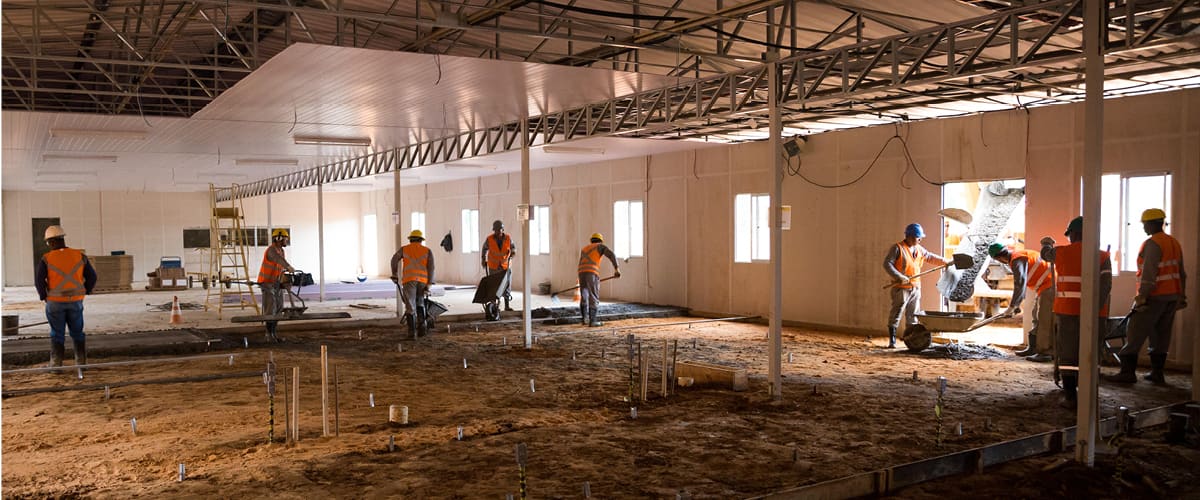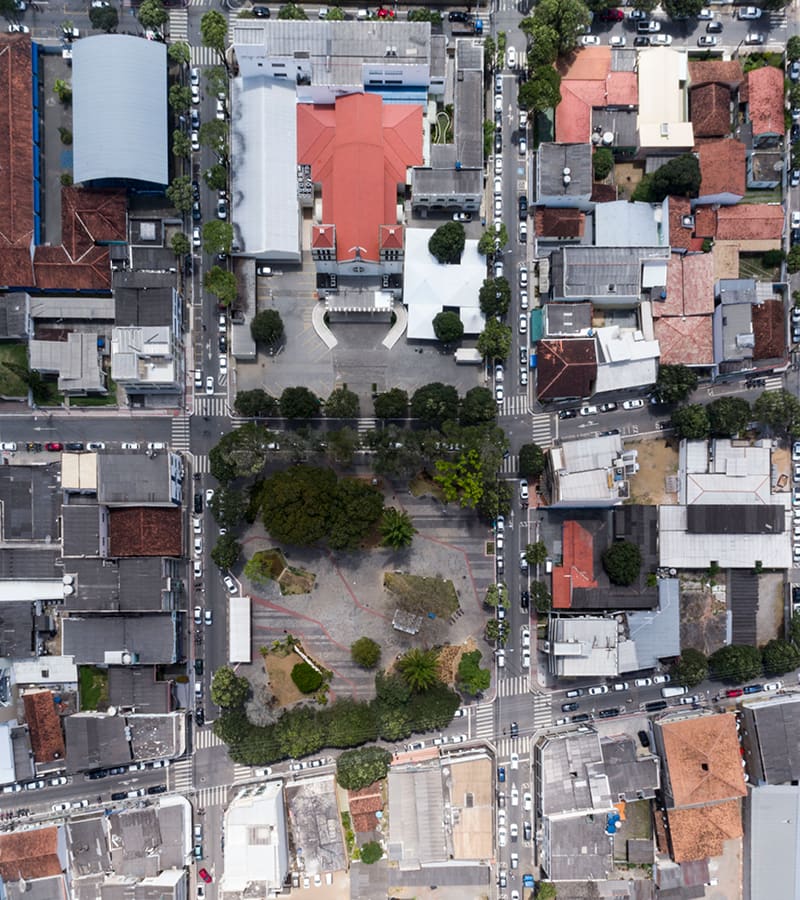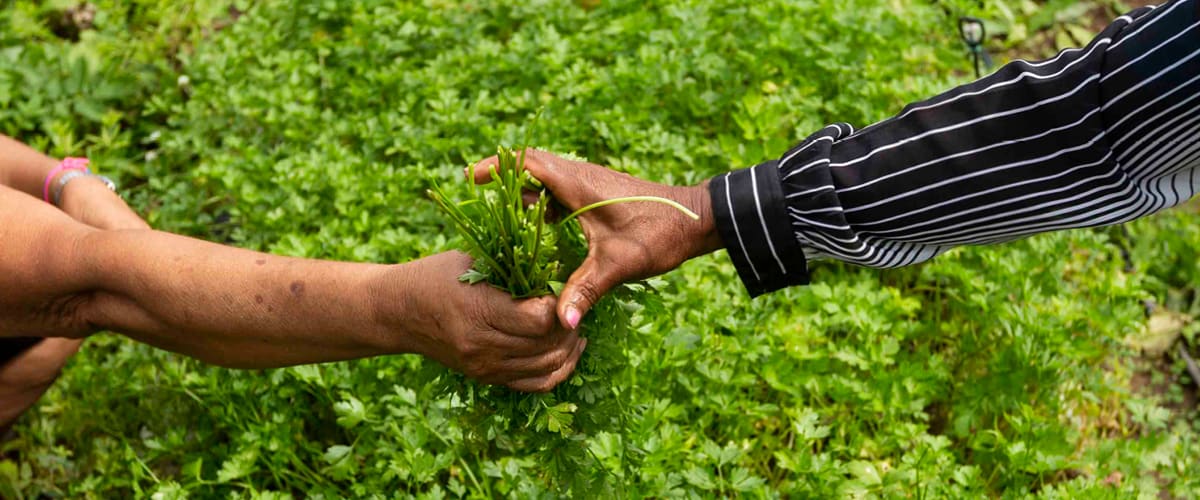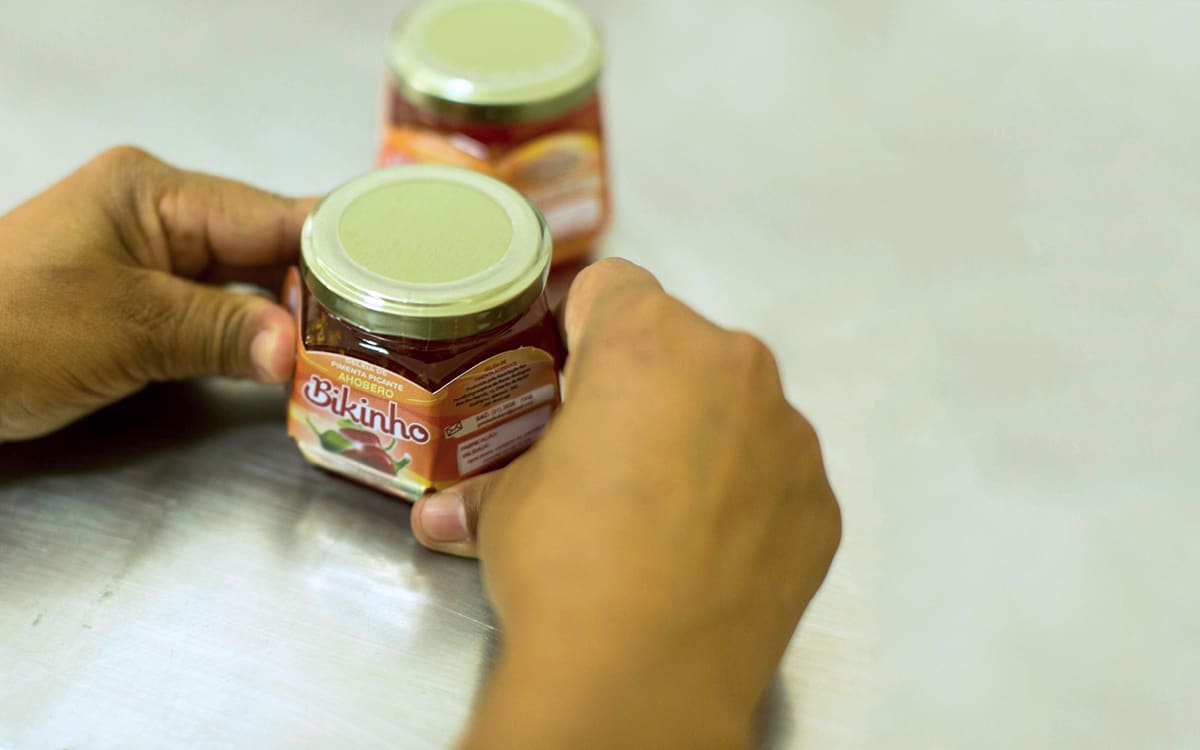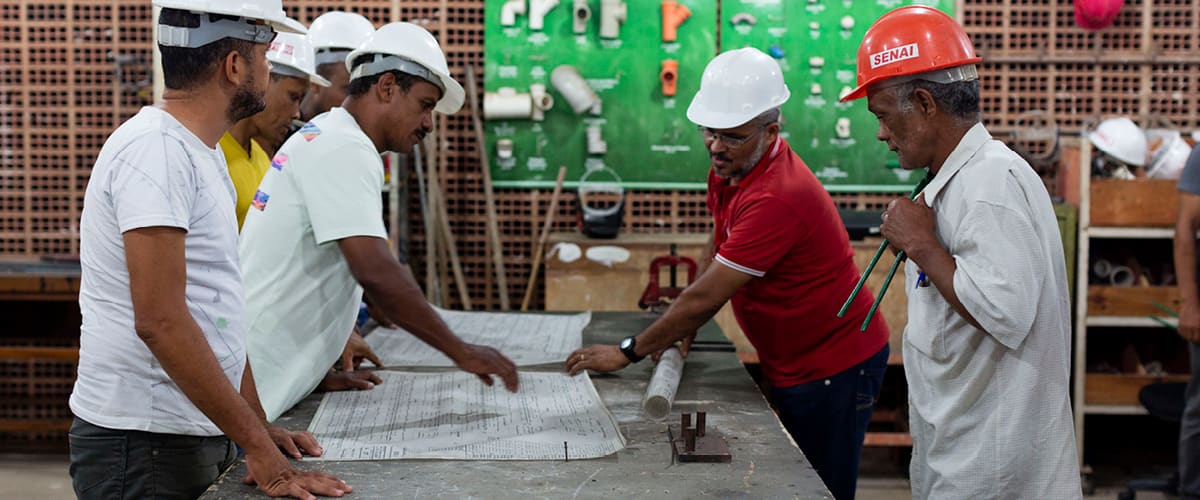Development Roads
FOSTERING THE LOCAL ECONOMY
In addition to repair and compensation actions, the Foundation works to foster the local economy on three fronts: promoting the economic diversification of municipalities, especially those that rely on mining; encouraging mechanisms to stimulate the development of productive chains; and restoring productive capacity to micro and small companies.
The Renova Foundation encourages the hiring of local suppliers and labour and provides business credit through development funds.
The repair work carried out by the Renova Foundation maintains 6.272 direct and indirect jobs.
Of the total of generated jobs generated, 53% of the professionals engaged into the repair works are from the affected municipalities.
The amount of the contracts signed with local suppliers for the entire area where the Renova Foundation operates until December 2019 is R$ 1,43 billion.
STATES
The Renova Foundation repair and compensation actions in Minas Gerais and Espírito Santo mobilized R$ 7,84 billion up to December 2019.
MARIANA
In August 2018, the Renova Foundation signed an agreement that prioritizes the hiring of labour and suppliers from companies in Mariana (MG) to carry out repair actions. With the term, Renova started to demand in the public notices and in the competition processes and bidding for the municipality the minimum hiring of 70% of local labor. The term was signed with the Mariana City Council, Metabase Union, Minas Gerais Integrated Development Institute (INDI), Mariana Service Providers and Equipment Rental Association (Ampla) and the Trade, Industrial and Agricultural Association (Acciam) of Mariana.
In July 2019, the Renova Foundation announced a package of approximately R$ 100 million for Mariana, signed with the City Hall. The planned interventions focus on economic diversification (including tourism), infrastructure and sustainable development. Among the initiatives are the renovation of Gomes Freire square, one of the main references of the city for tourists and residents, and the reactivation of the dairy cooperative. Also included in the package are the renovation and expansion of the Child and Adolescent Psychosocial Care Center (CAPSij), the implementation of the Entrepreneur House and the acquisition of the necessary infrastructure and technical assistance to prepare the georeferencing and the Mariana Master Plan.
Hiring local companies also generates taxes. Until December 2019, the hiring generated R$ 51,5 million in Services Tax (ISS) to the municipality.
Data until December 2019
DESENVOLVE RIO DOCE FUND
Launched in October 2017, in partnership with the Development Bank of Minas Gerais (BDMG) and the Development Bank of the State of Espírito Santo (Bandes), Desenvolve Rio Doce Fund is intended for micro and small companies in the impacted municipalities.
The Fund approved credit lines for 1.299 companies, generating a disbursement of R$ 37,9 million until December, 2019. Desenvolve Rio Doce offers more attractive conditions, for example, interest rates lower than the market average.
COMPETE RIO DOCE FUND
Launched in December, 2018, it is a credit line with attractive rates for micro and small companies that have some restrictions in control bodies and were left aside with no access to Desenvolve Rio Doce. Until August, 2019, the Compete Fund provided credit lines for 72 companies, which represented a sum of R$ 3,056 million disbursed for these projects.
DIVERSIFYING MARIANA FUND
Launched in May, 2018, with an amount of R$ 55 million, it aims to attract companies from the most diverse segments to Mariana (MG) and reduce its dependence on mining activity. The subsidy model pays part of the interest rates charged on credit operations.
ENTREPRENEURSHIP IN RESETTLEMENTS
In order to stimulate entrepreneurship and the consequent financial independence of families which will be resettled in Bento Rodrigues, Paracatu de Baixo (Mariana-MG), Gesteira (Barra Longa-MG) and rural areas, Renova Foundation implemented the Innovating Futures Futuros project, executed in partnership with Criare Institute. In the second half of 2019, the first phase of the awareness project with the families of Bento Rodrigues (16 participants) and Paracatu de Baixo (eight participants) was performed based on topics of self-knowledge, life and career planning, entrepreneurship, among others.
The result of a market research carried out over the second half of 2019, which mapped the commercial potential of families and resettlements, will guide the works of the next phase of the two pioneer groups. From February, the participants of Bento Rodrigues and Paracatu de Baixo effectively begin to develop business and enterprise plans with individual monitoring by specialists.
PARTNERSHIP WITH BRAZILFOUNDATION
The partnership between the Renova Foundation and BrazilFoundation, which provides financial support and training for organizations linked to entrepreneurship, received 40 proposals in its second call. The candidates showcased projects aimed at developing their activities and fostering the social impact of their actions and the income of the families involved. BrazilFoundation is an international organization that has been operating independently for 18 years to mobilize resources, ideas and actions that contribute to promoting equality, social justice and opportunities.
The first call, launched in December 2018, invested R$ 739 thousand in the 13 selected projects. The Small Farmers Association of Km 14 of Mutum Preto (APROKM), district of Baixo Guandu (ES), was one of the 13 selected with the Health in the Basket project. The contract between them, BrazilFoundation and Renova was signed in April of that year. According to the president of APROKM, Arlene Ribeiro Milani da Silva, the partnership, which will last one year, will allow 58 participating producers to buy machinery and, thus, improve the quality of their products and obtain more market penetration.
3 questions for Arlene Silva
Who are the participants in this partnership with BrazilFoundation?
The 58 producers of the Small Producers Association at Km 14 of Mutum Preto are participating in this partnership. They produce everything: beans, eggs, flour, vegetables in general. Everything is organic.
How will the partnership between the Renova Foundation and BrazilFoundation contribute to improving the situation of these producers?
It is allowing the Association to purchase equipment that will improve our production. Right now, we’re buying a car to help in delivery. It will also be important to facilitate the entry of these producers to the market. They are people who produced, for example, 50 kilos of cassava and had nowhere to sell everything. Now there will be. The producers are already prepared. They have already started to plant and prepare their products.
What is the most important in this partnership?
The appreciation of our product, which is organic, of very good quality. And the facilitation to sell.
PEPPER JELLY IN BENTO RODRIGUES
In Bento Rodrigues, Mariana district (Minas Gerais), a group of women rewrites their own history by resuming the tradition of producing the famous “Biquinho” pepper jelly. The failure of the Fundão dam in 2015 paralyzed the pepper jelly production activities of the Bento Rodrigues Fruits and Vegetables Association (Ahobero), which was in the process of expanding and generating income for Bento Rodrigues residents. With the help of the partnership with the NGO BrazilFoundation, the equipment was recovered, and the jelly producers have already returned to production in a rented space in Mariana. After the dam failure, the pepper jelly became a symbol of Bento Rodrigues.
BrazilFoundaton’s support allowed Ahobero to purchase jars, packaging and labels; adding more value to the production of spicy pepper jelly; achieving sufficient production to serve the existing public and reach new markets, increasing income for the nine associates and for 45 people indirectly.
TRAINING AND SUPPORTING ENTREPRENEURS
Residents and entrepreneurs of Linhares (headquarters), Regência and Povoação, at the mouth of the Doce River, in Espírito Santo, are qualifying to leverage and create new businesses in the districts impacted by the Fundão dam failure. Qualification courses, technical assistance, consultancy, exchange of experiences and participation in events are among the main actions developed for the resumption of the local economy.
Approximately R$ 4 million were spent on initiatives at the mouth, through the Renova Foundation Economy and Innovation Program, which are diversifying the economy and strengthening local entrepreneurship. More than 700 people participated in the actions, including residents, entrepreneurs in the field of handcrafts, fishing and owners of restaurants, inns, camping and event spaceS, which strengthens the tourist vocation of the region.
SEED PRODUCTION CHAIN
Renova Foundation is starting the Seed Network project to strengthen the environmental restoration production chain in the Doce River Basin, opening up social opportunities and gains in scale in this activity. The project, which is part of the Renova Foundation sustainable land use programs, has a partnership with the Northeast Research Center (Cepan).
The Seed Network will be responsible for supplying at least 50% of the Renova Foundation demand for seeds and seedlings for reforestation actions and will supply inputs to other demanders. The project aims to identify, train and encourage strategic links in the production chain, such as seed collectors and seedling producers, opening an inclusive and participatory market for native species.
This year, the Renova Foundation aims to incubate about 3,5 tons of seeds, with estimated expenses of R$ 350 thousand. According to the director of Cepan, Severino Ribeiro, “the initiative can become a successful case of job and income generation and inclusion of people, acting directly on one of the main points for the scale gain of restoration projects, which is the social participation and longevity of these projects”.
In the future, the Network will function as a cooperative or autonomous association, stimulating other links in the productive chain of environmental restoration, such as, for example, the manufacture of bio-jewelry (seed necklaces).
Read more about forest restoration programs in the Sustainable Land Use chapter.
BARRA LONGA AND REGÊNCIA EMBROIDERY
In Barra Longa (MG), embroiderers keep their art alive. The Minas Gerais Culture Association (ACG), with support from the Renova Foundation, has heated the local economy and generated income and opportunities for families. Participating in the project are women from the Mixed Rural Cooperative of Gesteira and the embroiderers group from Barra Longa known as “Meninas da Barra”.
The success of the embroiderers in Barra Longa led to a partnership with the stylist Ronaldo Fraga, who took the artisans’ creations to the São Paulo Fashion Week 2018 parade. These pieces are now part of the São Paulo Museum of Art (MASP) collection.
The Renova Foundation also supports embroiderers associations in the Regência community, in Linhares (ES). There are about 60 artisans, from the Craftsmen and Similars of Regência and Region Association (Arte).
The agreement signed between Renova and the Association has the amount of R$ 204 thousand and is expected to last for one year.
ADOBE BRICK MADE WITH TAILINGS
There are two studies addressing the “sustainable use of iron ore from the dam tailings for the handmade manufacture of adobe bricks applied to housing construction”, conducted by the Federal University of Ouro Preto (Ufop) and the Federal University of Lavras (Ufla).
Adobe is a solid brick made basically of raw land and water, molded into a shape, in an artisanal or semi-industrial process. It is an ancient technique that was widely used at the Colonial Brazil history period, including in Mariana at the Gold Cycle peak.
PARTNERSHIP WITH SENAI
The development and diversification of economic activities in the region affected by the failure of the Fundão dam are among the tasks of the Renova Foundation. The Foundation’s partnership with the National Service of Industrial Learning (Senai), both in Minas Gerais and Espírito Santo, contributes to the training of labor and to attract projects and companies that can promote the development of communities.
Cities such as Mariana, Rio Doce and Governador Valadares, in Minas Gerais, and Regência and Povoação, in Espírito Santo, were contemplated with courses in bakery, confectionery, electrical installations and several other professional courses, including for artisans. In Mariana alone, there were more than 800 qualification vacancies.
94 courses have been completed and another 30 are planned or in progress.
DOCE RIVER PUBLIC NOTICE
The Renova Foundation works to stimulate the tourist and cultural potential of the Doce River Basin, the mouth and the coast of Espírito Santo, with the aim of generating income for the local population. In addition to maintaining partnerships already signed, such as supporting the Regência stage of the Brazilian Surfing Circuit, the Renova Foundation wants to stimulate the growth of tourist activity throughout the region, in addition to sports, culture and leisure activities.
For that end, it launched two public notices: Doce Minas Gerais and Doce Espírito Santo, aiming to promote actions to improve the life quality of the municipality’s populations through cultural, tourism, sports and leisure projects of individuals, micro-entrepreneurs, collectives and informal groups.
Doce Minas Gerais public notice
The Doce Minas Gerais public notice was launched on September 2019 and the registration was closed on November 8th. The judging committee is evaluating the registered projects and the result shall be released by February.
Doce Minas Gerais public notice has a budget of R$ 9 million to be distributed by the projects, which will serve 36 municipalities in Minas Gerais.
Doce Espírito Santo public notice
The Doce Espírito Santo public notice, published on January 8th, 2020, has the same goal as the Doce Minas Gerais public notice, but aimed exclusively at Espírito Santo. There will be ten municipalities contemplated, which will be able to register projects in the three axes (Tourism, Sports and Leisure, and Culture).
Doce Espírito Santo public notice has a maximum total budget of R$ 4,5 million. Each of the three axes may receive up to R$ 1,5 million.
